Genetics
-
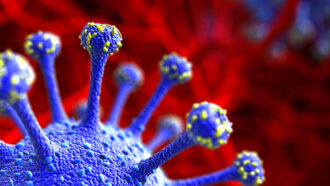 Microbes
MicrobesExplainer: Virus variants and strains
When viruses become more infectious or better able to survive the body’s immune system, they become a type of variant known as a strain.
By Janet Raloff -
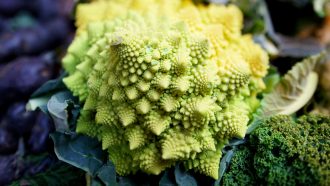 Plants
PlantsHow Romanesco cauliflower grows spiraling fractal cones
By tweaking just three genes in a common lab plant, scientists have mimicked one of nature’s most impressive mathematical patterns.
By Nikk Ogasa -
 Genetics
GeneticsJust a tiny share of the DNA in us is unique to humans
Some of these tweaks to DNA, however, may have played a role in brain evolution.
-
 Genetics
GeneticsEurope’s ancient humans often hooked up with Neandertals
DNA from ancient bones shows humans and Neandertals were regularly mixing genes by about 45,000 years ago.
By Bruce Bower -
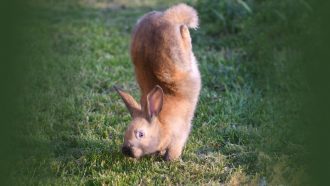 Life
LifeThese rabbits can’t hop. A gene defect makes them do handstands
Mutations in a gene that helps nerve cells work properly rob rabbits of their ability to hop. Instead, the animals use their front paws to move.
-
 Genetics
GeneticsLet’s learn about DNA
DNA is made of two chemical chains twisted around each other. It stores information that allows cells to grow and function.
-
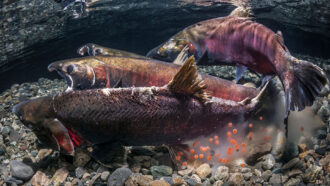 Life
LifeScientists Say: Egg and sperm
An egg or a sperm cell contains half of the normal genes an organism needs. They fuse together to form a new individual.
-
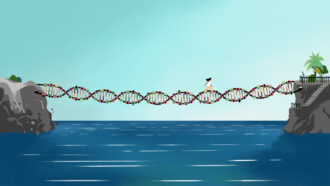 Humans
HumansBy not including everyone, genome science has blind spots
Little diversity in genetic databases makes precision medicine hard for many. One historian proposes a solution, but some scientists doubt it’ll work.
-
 Animals
AnimalsHow do you build a centaur?
A centaur has the torso of a human and the body of a horse. It may sound cool, but it wouldn’t work very well.
-
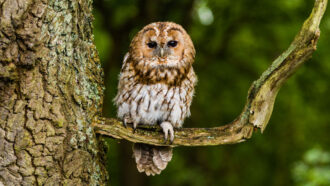 Genetics
GeneticsScientists Say: Evolution
Evolution is how species change over time. Individuals in the group vary, and some will pass on their genes. Over time, the whole species changes.
-
 Genetics
GeneticsGene editing can alter body fat and may fight diabetes
Researchers have long dreamed of using brown fat to fight obesity and diabetes. Work in animals shows they’re closing in on achieving that dream.
-
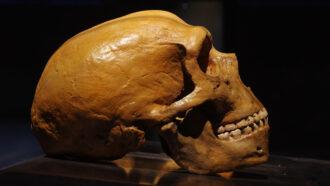 Health & Medicine
Health & MedicineSome Neandertal genes may up the risk of severe COVID-19
Most of the affected people descend from communities in South Asia or live in Europe today.